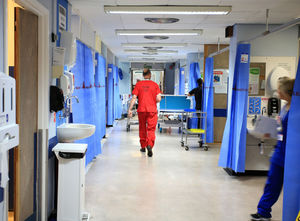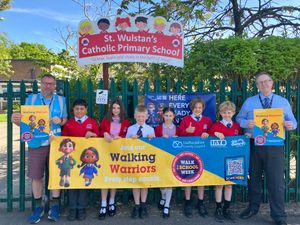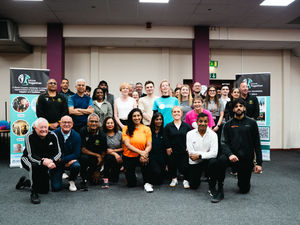West Midlands hospitals will see pressures ramped up amid new strike
Hospitals in the West Midlands are expected to be under "significant pressure" when junior doctors walk out this week as a dispute over pay continues.

Health chiefs stressed emergency care would be prioritised, with people with non-life-threatening emergencies being signposted to NHS 111 to avoid the strain on A&E.
The medics, who deliver around 70 per cent of all frontline patient care, will strike between 6.59am on Tuesday to 6.59am on Saturday nationally as the row over pay rumbles on.
Dr Jonathan Odum, group chief medical officer for The Royal Wolverhampton NHS Trust and Walsall Healthcare NHS Trust, said: "Our junior doctors are an essential and highly valued part of the NHS, encompassing a wide range of experience and specialism, and delivering around 70 per cent of all frontline patient care that is provided by doctors in hospitals.
“This strike action follows the Easter Bank Holiday weekend, when the NHS would usually see increased demand on urgent and emergency care services, so local hospitals are expecting to be under significant pressure.
"I would like to thank all the NHS colleagues who are working hard to keep essential services running and ensure patients continue to receive safe, effective, and high-quality care. I would encourage the public to help us at this time by using the right NHS service for your level of need – you can get advice on where to go by visiting NHS 111 online or calling 111."
People should use 111 online as the first port of call for health needs and can also call the service for help and advice. Pharmacies, GP appointments, walk-in centres, minor injury units and urgent treatment centres will be open amid the strike action.
And people with hospital appointments should continue to come forward for the care they need and do not need to call to check if appointments are going ahead.
Sally Roberts, chief nursing officer for the NHS Black Country Integrated Care Board, said: “Patient safety is our absolute priority and health and care partners across the Black Country are working together to ensure that despite significant disruption, essential urgent and emergency care services will still be available for patients who need it most.
“It is really important that anyone who needs urgent medical care continues to come forward as normal, especially in emergency and life-threatening cases. However, if is non-life threatening, please think about which is the most appropriate service for your needs.
“If you need medical help or advice, you should contact NHS 111 in the first instance, and they will direct you to the most appropriate service for advice or treatment. This could include your local pharmacy, GP or a local NHS walk-in centre.
“By ensuring you choose the most appropriate service, this will help NHS services to manage demand and ensure A&E departments can focus on treating people with serious and life-threatening conditions.
“We’d like to thank the public for all their support, and we are also incredibly grateful to all of our hard-working staff and volunteers as they work to keep patients safe during this busy period.
Junior doctors make up around half of all doctors in the NHS and they are qualified doctors, who have anywhere up to eight years' experience as a hospital doctor, depending on their specialist, or up to three years in general practice.





